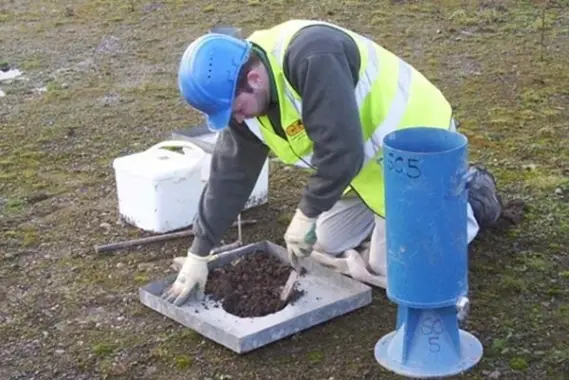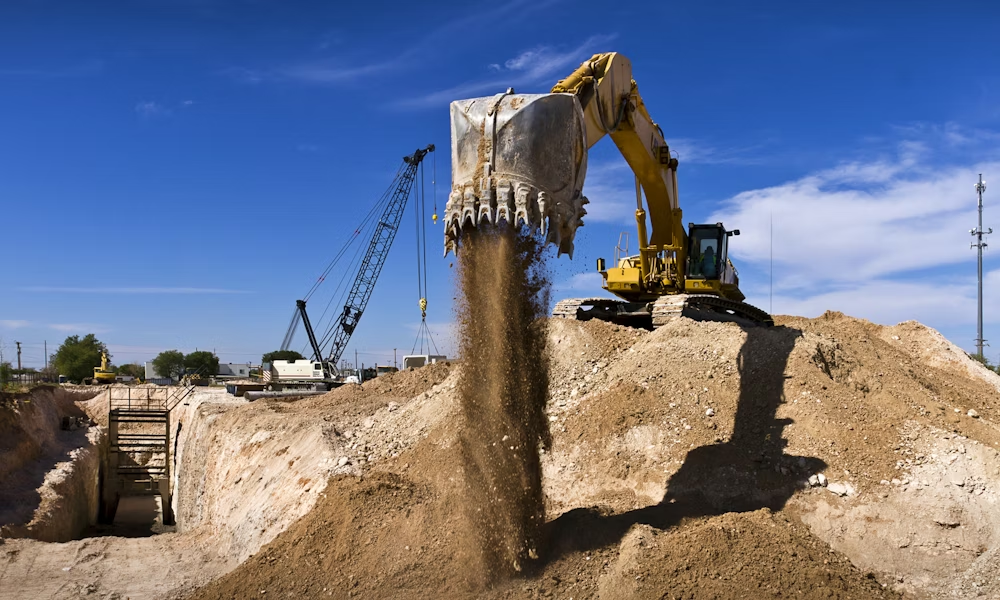Lubbock, the Hub City of the South Plains, is a vibrant region experiencing constant development. As construction projects continue to reshape the landscape, understanding soil conditions becomes crucial for ensuring safe and stable structures. This is where soil testing in Lubbock plays a vital role. However, it’s important to clarify that soil testing in Lubbock, much like in other regions, primarily focuses on construction and geotechnical purposes and does not include testing and analysis specifically for garden soil.
So, if you’re embarking on a construction project, be it a residential home, commercial building, or infrastructure development, soil testing in Lubbock becomes an essential step. This comprehensive guide sheds light on the significance of soil testing in construction, explores the types of tests conducted, and outlines the benefits it offers.
Why is Soil Testing in Lubbock Crucial for Construction Projects?
Lubbock’s soil composition is unique, characterized by a mix of caliche, clay, and sandy loam. This diversity necessitates soil testing in Lubbock to gain valuable insights into the following aspects:
- Soil Strength and Bearing Capacity: Knowing the soil’s strength and bearing capacity is paramount for determining its ability to support the weight of the planned structure. Weak or unstable soil can lead to foundation failure, jeopardizing the entire project.
- Soil Composition: Identifying the soil’s composition, including the presence of expansive clays or organic matter, helps engineers design appropriate foundations and mitigate potential risks like settlement and cracking.
- Drainage Characteristics: Understanding the drainage characteristics of the soil is crucial for ensuring proper water management and preventing issues like flooding, erosion, and foundation damage.
- Potential Environmental Concerns: Soil testing in Lubbock can also help identify potential environmental concerns, such as the presence of contaminants or hazardous materials, allowing for proper mitigation strategies.
Types of Soil Testing Conducted in Lubbock:
1. Standard Penetration Test (SPT): This in-situ test involves driving a standard split spoon sampler into the ground to measure the number of blows required for penetration. The SPT results provide an indication of the relative density and bearing capacity of the soil.
2. Cone Penetration Test (CPT): This electronic test utilizes a cone-shaped probe pushed into the ground to measure its resistance. CPT offers continuous data acquisition, providing a detailed profile of the soil’s strength and characteristics.
3. Soil Sampling and Laboratory Testing: This approach involves collecting soil samples from the site and sending them to a laboratory for further analysis. Laboratory tests can determine the soil’s physical and chemical properties, including particle size distribution, moisture content, and presence of specific minerals.
Discover the various types of soil testing conducted in Lubbock. Contact us today to learn more and ensure your project is built on solid ground!

Benefits of Soil Testing in Lubbock:
1. Cost-Effectiveness: While soil testing in Lubbock involves an upfront cost, it saves significant resources in the long run. Early identification of potential problems allows for cost-effective solutions, preventing costly repairs or project delays due to unforeseen soil issues.
2. Enhanced Structural Stability: By understanding the soil’s limitations and strengths, engineers can design foundations and structures that are tailored to the specific site conditions, leading to increased structural stability and longevity.
3. Mitigates Risks: Soil testing in Lubbock helps identify potential risks associated with the soil, such as settlement, landslides, and liquefaction, enabling engineers to implement appropriate mitigation strategies and ensure the project’s safety.
4. Informed Decision-Making: By providing valuable data on the soil’s characteristics, soil testing in Lubbock empowers engineers and project owners to make informed decisions regarding foundation design, construction materials, and potential risk management solutions.

Soil sample testing Lubbock is crucial for assessing land suitability before beginning any construction project.
For reliable results, choose our professional services for soil test Lubbock.
If you need precise and reliable information about the quality and properties of the soil at your construction site, make sure to visit the soil testing lab Lubbock. This lab, equipped with advanced technology and a skilled team, conducts comprehensive soil analyses that can help you plan your construction projects more safely and effectively. By utilizing the services of this lab, you can ensure that the soil is suitable for construction, identify any hidden issues, and guarantee the safety of your project.
Conclusion:
Soil testing in Lubbock is an indispensable step for any construction project. By providing crucial insights into the soil’s composition, strength, and behavior, soil testing in Lubbock empowers engineers to design safe, sustainable, and cost-effective structures. Whether you’re building a home, a commercial building, or vital infrastructure, soil testing in Lubbock lays the foundation for a successful and secure project.
Note: It’s important to consult with qualified geotechnical engineers or soil testing labs in Lubbock to determine the specific types of tests required for your project, ensuring the best possible outcome for your specific needs and local soil conditions.
Lubbock’s soil composition is unique, characterized by a mix of caliche, clay, and sandy loam. This diversity necessitates soil testing in Lubbock to gain valuable insights into the following aspects:
1. Standard Penetration Test (SPT): This in-situ test involves driving a standard split spoon sampler into the ground to measure the number of blows required for penetration. The SPT results provide an indication of the relative density and bearing capacity of the soil.
How useful was this post?
Click on a star to rate it!
Average rating 4.4 / 5. Vote count: 26
No votes so far! Be the first to rate this post.

